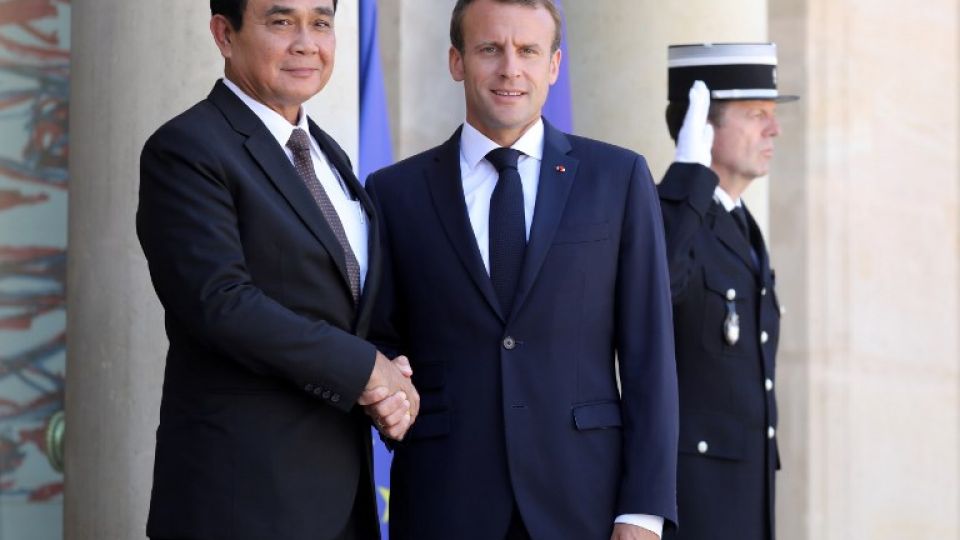June 29, 2018
Critics of the junta left dismayed by his warm reception in France and Britain should remember there’s an election coming.
Critics of Prime Minister Prayut Chan-o-cha may have been highly disappointed to find that the junta leader was formally welcomed by leading Western democracies during his recent official visits to the United Kingdom and France.
After returning to Thailand on Tuesday, General Prayut boasted about the “honourable welcome” he received while in Britain and France during his weeklong visit. It was an important trip that allowed him to meet with UK Prime Minister Theresa May and French President Emmanuel Macron, in addition to many local business people and company executives.
For the junta and its supporters, Prayut’s latest overseas trip pointed to acceptance from the two world powers that once strongly criticised the 2014 coup he led and opposed the military-led administration he formed a few months afterwards. The junta leader’s trip was like a victory for the regime.
The Thai junta obviously has benefits to offer the European nations Prayut visited. These include a chance to sell their products such as space satellites, possible trade deals with Thailand, further access to other member-countries of the Association of Southeast Asian Nations (Asean) through Thailand, and investment opportunities in the Eastern Economic Corridor industrial project.
Critics of the junta cannot wholeheartedly rely on Western countries to pressure Prayut to do as they would like. They should realise that virtually all countries in the world are supposed to pursue their foreign policies based on their own national interests. Policy-makers with integrity always place how their country benefits over other factors, even the level of democracy or human rights records of any country with which they’re dealing.
We cannot expect Thailand’s politics to be changed through pressure from foreign powers or the international community. Political changes should rather be made through the ballot box.
The next general election has been promised to take place in the first half of next year, sometime between February and May. We as voters can make changes for the better at that time, by supporting the candidates and political parties we sincerely believe will bring improvements to the country.
Yes, there will be a lot of candidates and parties available to be chosen. And most of them – if not all – will be far from perfect. Most politicians and parties currently offering themselves as choices for voters have different degrees of tainted history and questionable backgrounds. They are accused of involvement in corruption scandals, being responsible for violent protest crackdowns, supporting dictatorships or coup-makers, and being linked to dirty political players, among other things.
Without perfect choices, what voters should do is to opt for the least or lesser of the evils being offered.
The election must be free and fair. And the authorities involved must ensure an environment that allows voters to cast their ballots freely and the voting to be conducted fairly.
Also, voters need to make decisions based on good conscience, with an aim to bettering the country and benefiting its people, and not just grab the immediate rewards offered them for selfish purposes.


